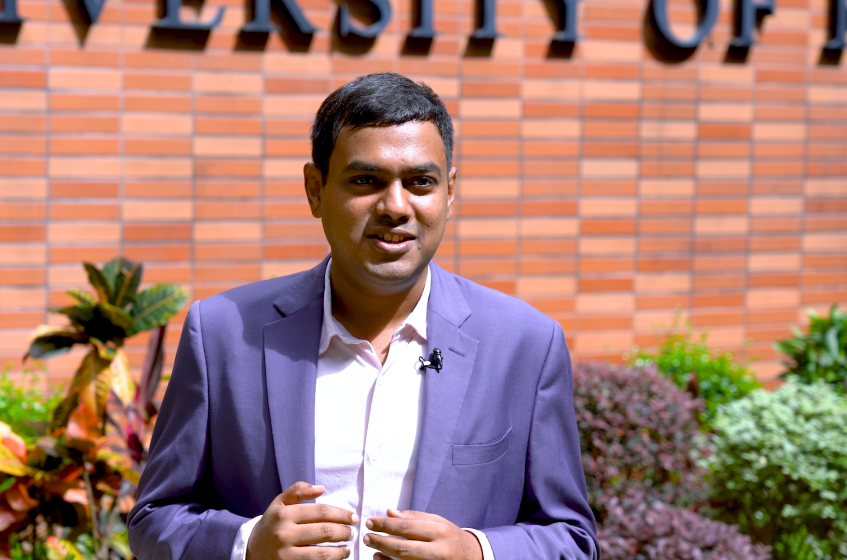
Professor Sundara Panchanatham’s Journey of Empowering Change through Knowledge and Compassion for Better Lives
Public healthcare systems are often under scrutiny on how they cope with growing demand and evolving health needs. Professor Sundara Natarajan Panchanatham has been studying ways to make them more accessible, efficient and sustainable.
His pursuit of improving healthcare access and resource management stems from a personal experience. When he was young, he found out through his uncle, a pharmacist, how desperate some patients can be, such as asking for medication without a prescription. These people are often priced out of private medical care yet stuck in the growing waiting list at public hospitals.
That difficult side of the world is rather different to the healthy and cheerful environment Professor Panchanatham grew up in. As the son of two university professors, he spent much of his childhood in lecture halls and chemical laboratories. He also often travelled with his parents to overseas conferences and workshops. Such an academic environment provided him with many learning opportunities which he fully embraced. With his parents’ support and guidance, Professor Panchanatham always knew his knowledge and skills could create a positive impact of people’s lives. He firmly believes the essence of research lies in its ability to better humanity.
With that in mind, he seeks to improve resource management and boost access to healthcare services. He has researched extensively on resource allocation for stem cell transplants. By optimising allocation between bone marrow donor registries and cord blood banks, he discovered that it is possible to provide transplants to 33% more patients who would have been denied in the United States.
In another study, he looked into the benefits of shared medical appointments. Grouping patients with similar medical conditions for doctor consultations can help reduce waiting times and bridge the supply gap in the healthcare system. That is part of his wider project, using mathematical modelling and empirical analysis to investigate the effectiveness of various practices in alleviating pressure on healthcare systems.
His latest project pivots around infant death prevention and ways to solve maternity-related complications in hospitals in rural India. This is done by investigating the relationship between diagnostic interventions and operational strategies. Doing so helps determine the best ways to allocate beds and medication, as well as introduce government interventions like providing counsellors and distributing dietary kits for underserved pregnant women.
Professor Panchanatham remains curious about the negative spillover effects of medical tourism on both the host and source countries. By identifying critical problem areas, he hopes to help devise new strategies on policy-making and health systems.
Professor Panchanatham’s ability to untangle complex healthcare operations lies with his multidisciplinary knowledge. He was initially trained as an industrial engineer but went on to obtain a Ph.D. in Technology and Operations Management at INSEAD. His eagerness to learn has continued to pave way for exciting opportunities ahead.
Rather than stay in his research base in Singapore, Professor Panchanatham decided to make a life in Hong Kong, where he is now Assistant Professor at HKU Business School. He teaches MSBA and undergraduate students Decision and Risk Analysis, Business Simulation and Applied Mathematics. His enthusiasm, breadth of knowledge and determination continue to inspire students in the pursuit of multidisciplinary knowledge. Through dedicated teaching and impactful research, Professor Panchanatham hopes to groom a new generation of talents, that can make the world a better place.





